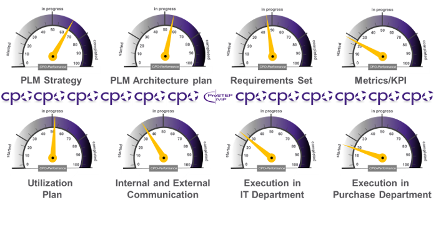Ready for Openness
Survey: Industrial Readiness for Openness
At the prostep ivip symposium 2016 Helmut Schütt, CIO Commercial Vehicles Trucks Buses & Vans at Daimler, made it pretty clear:
No one can live shut off from the rest of the world any more. Openness is crucial. We expect genuinely open systems because we must be able to integrate components from different vendors on the basis of open standards.
And Dr. Siegmar Haasis, Head of Information Technology Management at the Mercedes-Benz Cars Research & Development Department added:
PLM manufacturers now have the opportunity to offer innovative new products and that’s not a bad thing. But for us as an OEM, the essential thing is that the individual modules can not just be bolted on but are instead highly integrated and that, if necessary, we can replace them by other best-in-class systems. That is the main challenge, and one to which the IT vendors have not yet paid enough attention. That is why we are so vociferous in demanding openness, interoperability and support for international standards.
The necessity for openness, especially when talking about the digitalization of the whole value chain in general and Systems engineering in particular, is clear.
Under the umbrella of prostep ivip’s Initiative Code of PLM Openness (CPO) we recently conducted a survey within the rows of PLM users (manufacturers and suppliers) to identify their readiness for openness and fields for action.
- Openness is still more seen as an IT topic, rather than a Business one
- Systems Engineering could equalize these borders in future
- Bigger companies do easier with CPO, because of available resources
- CPO application in industry has started, but takes time
- Major/Costly system migrations are often seen as driver for applying CPO
- Industry understands the need for openness concretely (67%), deriving specific openness requirements is work in progress at most of the companies (47%), assigning KPI in most cases is still a wish (24%) and to define monetary consequences is more or less not considered until now (18%).
The CPO defines a baseline for openness-related discussions between IT users, IT vendors and IT service providers. At user companies CPO is used as a source for openness-requirements.
Quo Vadis?
The roadmap for the next steps are clear, the valley of tears is left behind. Now, if all market participants really want to go for innovation and digitalization, the real work can start.




Leave a Reply
Want to join the discussion?Feel free to contribute!